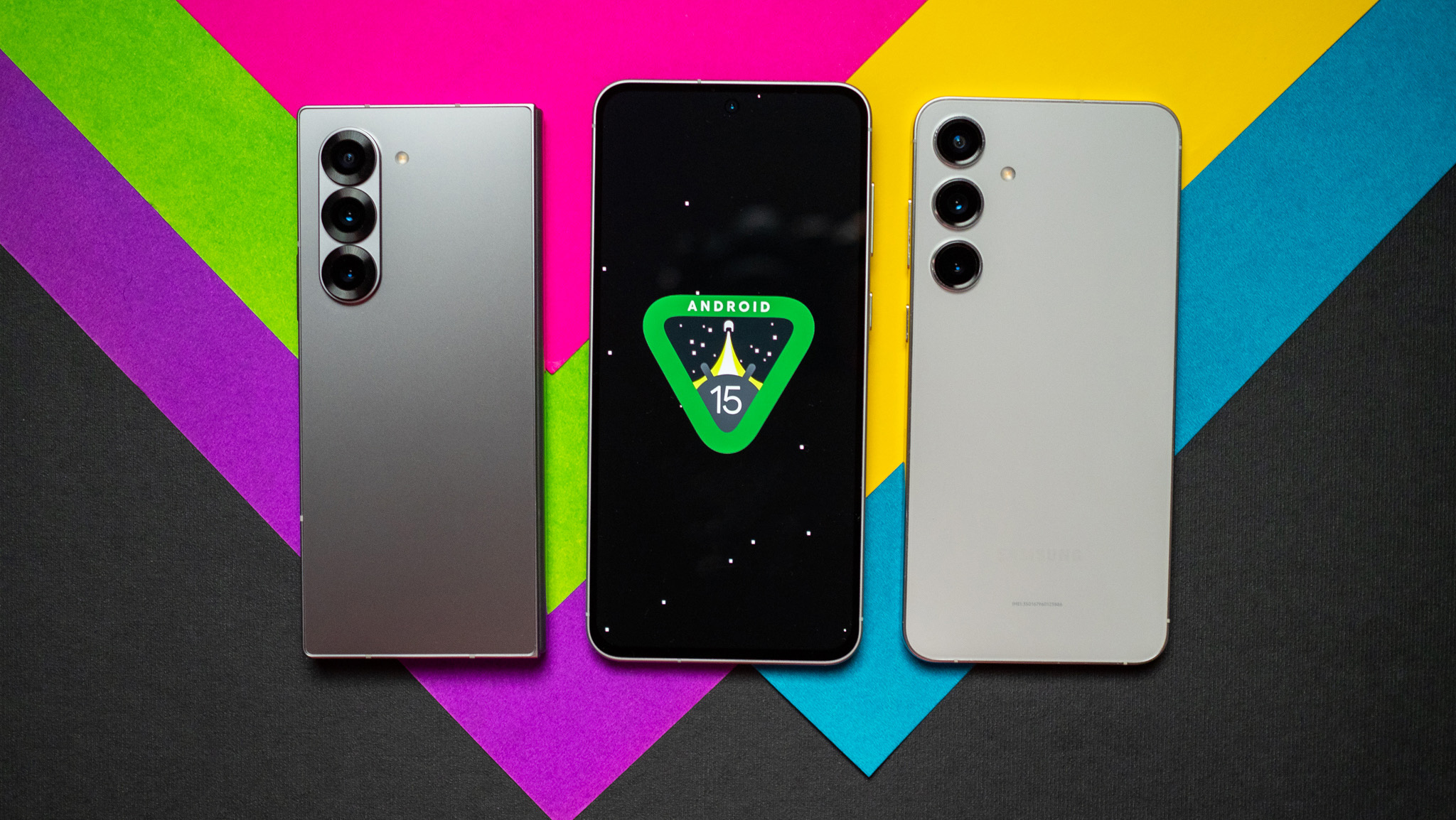The Android tablet space has rarely set the world alight. While there are some great Android tablets on the market, much of the segment is now focused on cheaper iPad alternatives, as opposed to products that compete at the high end. The Huawei MatePad Pro is an exception. It's an iPad Pro lookalike running Huawei's custom silicon, and built around the new ecosystem the company is trying to foster in its post-Google era. (As such, it's a far cry from many of the Samsung Android Tablets that occupy the upper mid-range.)
But just as Huawei's smartphones have run into some teething issues with app support, there are also some significant challenges facing the MatePad Pro. Even with its magnificent hardware, quick performance and helpful multitasking features, how useful this tablet will be to you largely depends on how comfortable you feel living outside of the Google ecosystem.
In another world, the Huawei MatePad Pro might've reigned supreme over all other Android slates. In our current timeline, however, any recommendation has to come with a litany of strings attached. In other words, although the MatePad is an impressive piece of hardware, there are a lot of "buts" involved here.
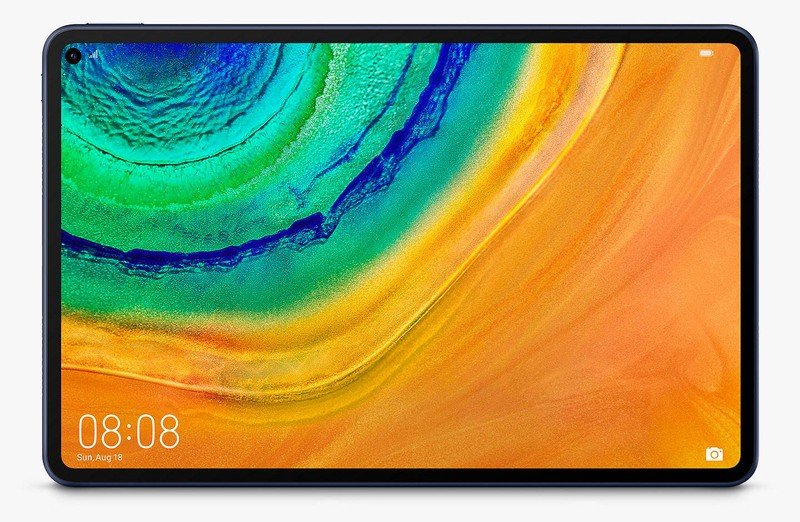
Bottom line: The MatePad Pro is yet another impressive piece of hardware whose appeal is limited by circumstances outside of Huawei's control. The lack of Google services will be a deal-breaker for a lot of people. If you exist completely outside of Google's ecosystem, though, you'll find plenty to like here, including solid audiovisual performance, and useful productivity and multitasking features. It's still early days for Huawei's own ecosystem, though.
Huawei MatePad Pro: What I like
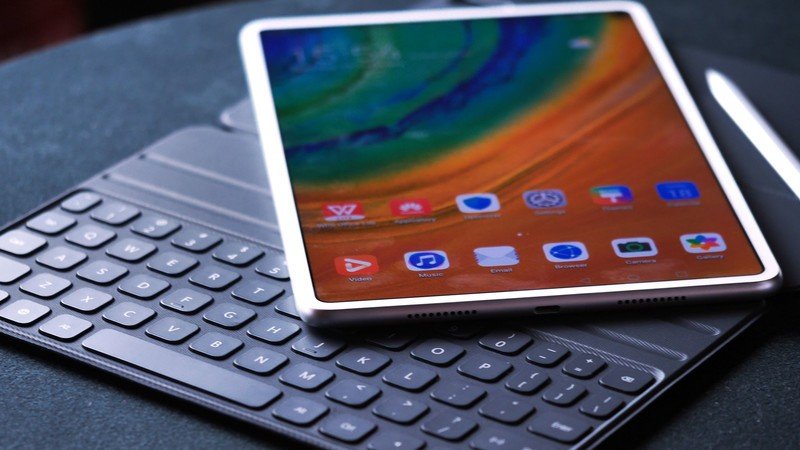
There's no denying that the MatePad Pro is a beautiful piece of kit. It's metal-framed, with minimal bezels, and easy to one-hand thanks to its light weight. The display is a sharp 10.8-inch IPS LCD panel at 2560x1600 resolution, putting it on par with the iPad Pro. (Though at a lower 60Hz refresh rate.) Off-angle viewing hasn't been a problem in my time with the tablet, and the panel's vibrant colors and ample daylight visibility also make for an impressive overall package.
There's the necessary evil of that front-facing hole-punch camera, of course, which is the only blemish on the otherwise pristine front face of the tablet. In reality, this is present more for security than selfie-snapping, since there's no fingerprint scanner included in the MatePad. As such, face unlock is your go-to method for quick unlocks, and while it's not secure enough to be used for mobile payments, that's not a big deal in a tablet.
A fantastic display and capable quad speakers.
The MatePad is a capable audio performer too, with quad speakers tuned by Harman-Kardon that offer plentiful volume and clarity — though a little lacking in the area of bass.
The whole package is powered by Huawei's high-end Kirin 990 — the same performant chipset you'll find in the flagship Mate 30 and P40 series of phones. The tablet is available in both WiFi-only and 5G versions; we've been reviwing the WiFi-only model.
The internal 7,250mAh battery got me through around two to three days of on-and-off usage, which is impressive for an Android tablet. Only prolonged video streaming in YouTube (via the browser app, naturally) could see me reaching for the charging cable before bedtime.
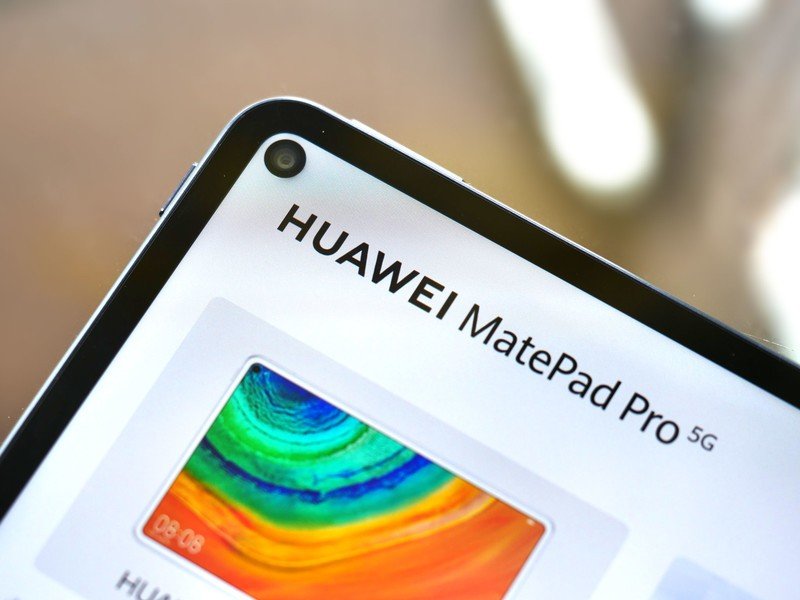
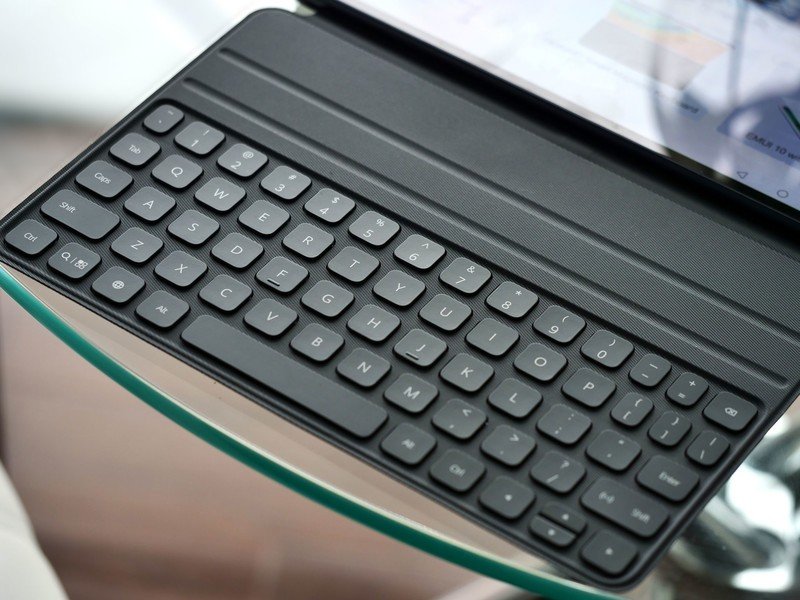
You've got plenty of charging options at your disposal, too. The MatePad Pro supports Huawei's 40W SuperCharge spec, same as its smartphones, in addition to 27W wireless charging via the company's proprietary puck. In addition, should you need to top up your earbuds or phones, reverse wireless charging is also supported, essentially turning the tablet into an oversized Qi powerbank.
Our review kit came packaged with Huawei's keyboard folio in grey "vegan leather," as well as the Huawei M Pen. Both extend the functionality of the MatePad beyond simple browsing and streaming, and I was impressed with the performance of both. The keyboard was a significant improvement on earlier Huawei efforts, with reasonably firm key response. And despite its small size, the keyboard didn't feel cramped. Meanwhile the M Pen, which snaps to the top of the MatePad (a la Apple Pencil) brings the tablet to life as a drawing canvas or note-taking device, with 4096 levels of pressure sensitivity.
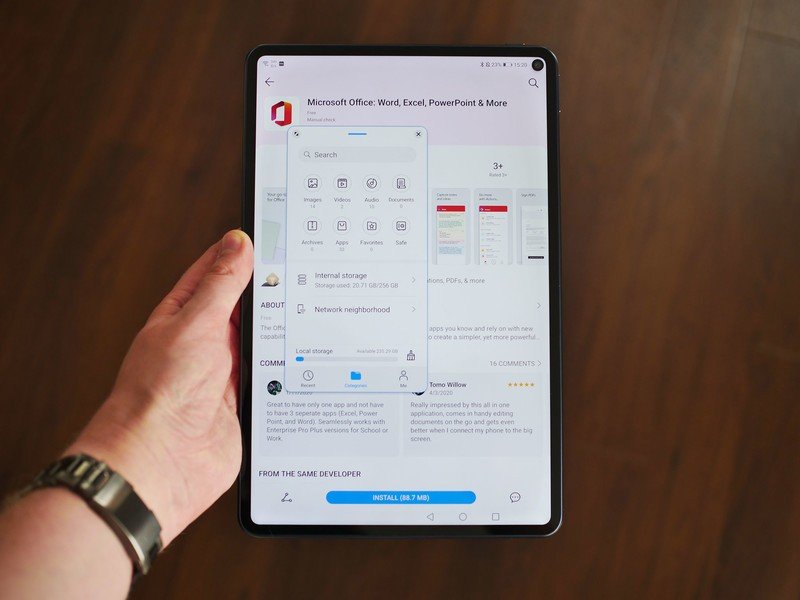
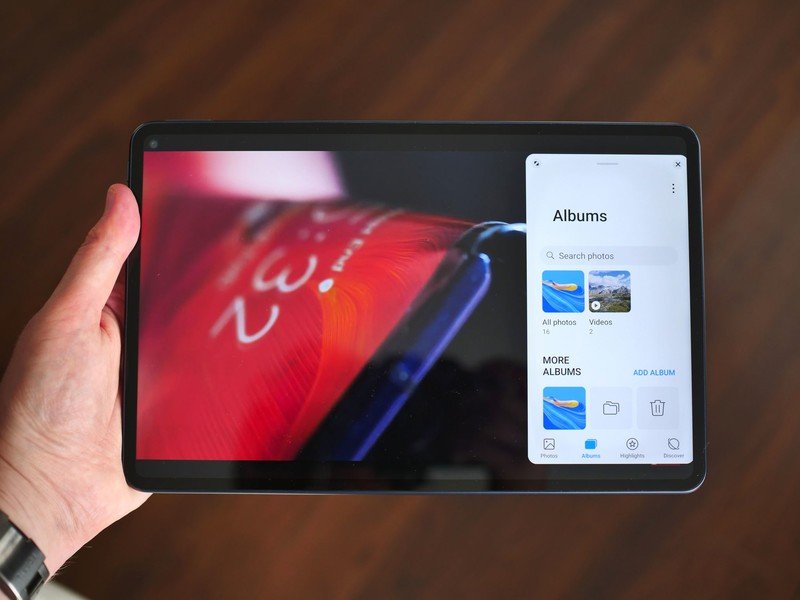
Huawei brings some iPad-like multitasking features to EMUI.
While the MatePad's software is definitely a mixed bag, as we'll get to shortly, there are some genuinely useful features built into the latest version of EMUI 10.1. The most notable addition is the new multitasking menu. A swipe inwards from the vertical bezel (or swipe and hold if you're using gesture navigation) will fire up a menu from which you can select one of a handful of favorite apps to be loaded in windowed mode. Essentially any Android app can be loaded in a floating phone-sized window, and from there you can maximize apps to view them full-screen, or drag to the edge of the screen to activate split-screen mode.
The whole dynamic is similar to the iPad's multitasking experience, and makes great use of the MatePad's expansive display.
Similarly, the MatePad can connect to Huawei smartphones to enable some unique software features. Just like the company's newer laptops, tapping your phone on the NFC point can conjure up a windowed mirror of your phone's display, letting you control your handset wirelessly via the MatePad. The feature also supports quickly taking screenshots, or transferring files between Mate and MatePad.
Huawei MatePad Pro: What I don't like
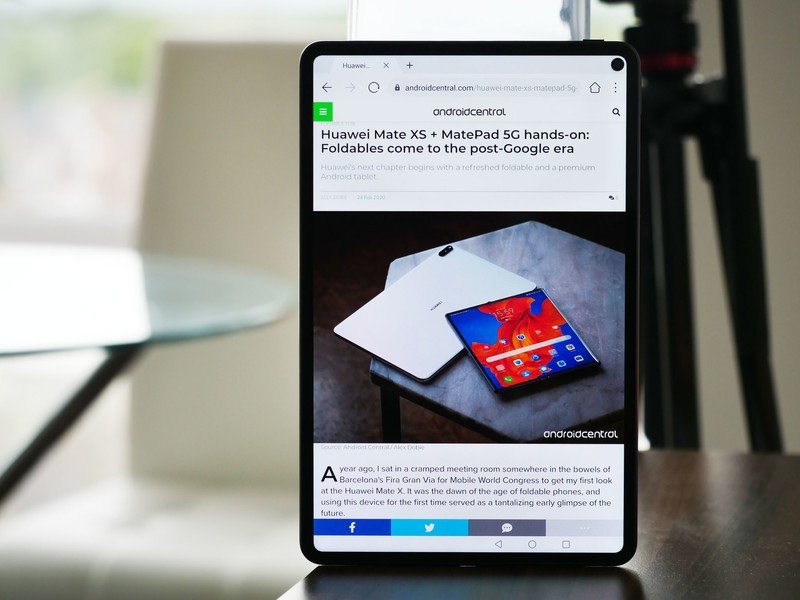
Lack of Google services remains a big problem for Huawei.
There are a few niggling issues I've noticed with the MatePad Pro in my time with it. The haptic feedback is weak and fairly rattly, especially compared to Huawei's current smartphones. The hole-punch camera can be a distraction, especially when playing video. And EMUI itself just isn't as pleasing to look at as Samsung's One UI on a tablet.
But let's just get to the big one: The lack of Google Mobile Services has been the Achilles' heel of so many Huawei products over the past year. Huawei is working to build out its own ecosystem, and plug the gaps left in its app lineup through endeavors like Petal Search, which can download and update apps from elsewhere on the web. But the fact remains you're in for a harder time finding and downloading apps on the MatePad compared to any other Android tablet. Most people are simply not going to have time for that extra hassle.
Those compromises come into even sharper focus considering that even on Google Play, Android tablet app support isn't great.
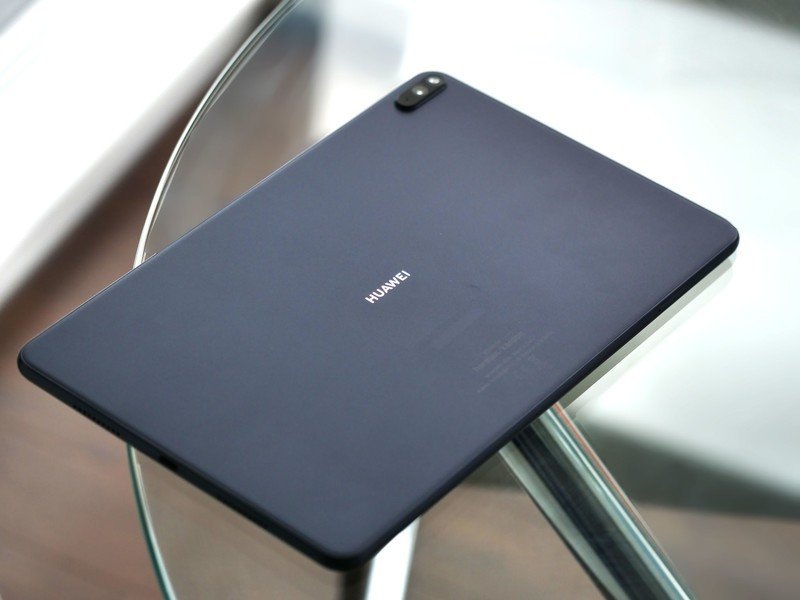
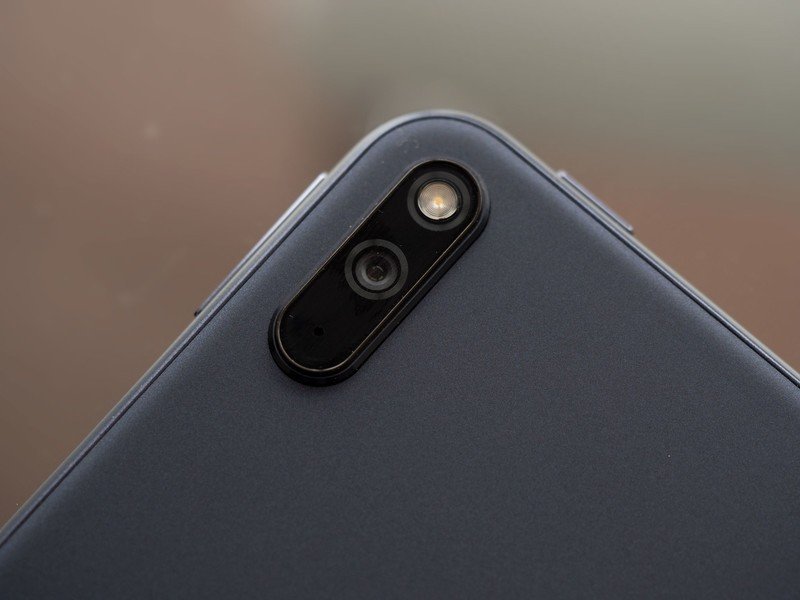
If you're using the MatePad Pro for productivity, you're going to have to leave G Suite, Google Drive and Keep Notes behind, unless you plan on sideloading. Google Docs is usable via Chrome should you wish to sideload that app, but the experience isn't as fluid aas the naative Android Google Drive app. So Instead you'll be relying on the WPS Office app preloaded on the device, or alternatively Microsoft Office, which is available on AppGallery.
Same deal with media streaming. Netflix is out of the question, even with sideloading, because the MatePad fails Google's SafetyNet checks. Other staples like BBC iPlayer work fine, as does YouTube either through a web browser or a sideloaded Android app, though without the ability to log in to an account.
To put it simply, if you rely on Google for work or play, you're going to have a hard time with the MatePad Pro. For me, and a lot of others, that's probably a deal-breaker.
Huawei MatePad Pro Competition
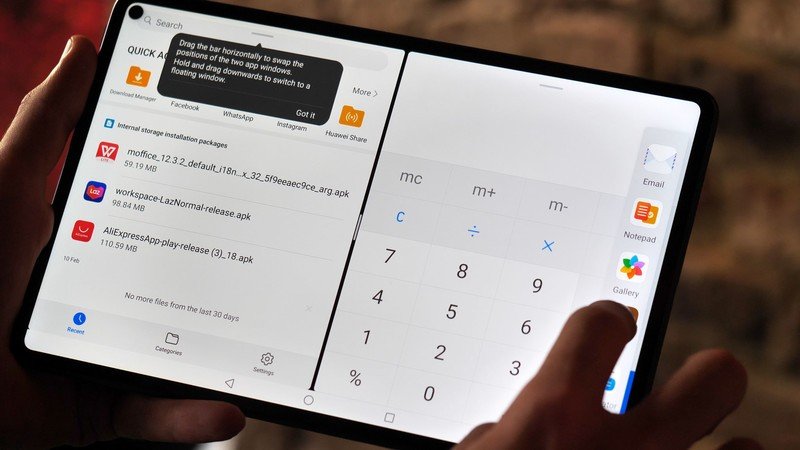
If you're after a high-end Android tablet, the main alternatives to the Huawei MatePad Pro come from Samsung. Recent entries into our Best Android tablets list includes two Samsung tabs priced either side of the MatePad's £499 figure. The Galaxy Tab S6 offers many of the same features as the Huawei tablet, including an optional keyboard attachment. It's also powered by a high-end Qualcomm Snapdragon 855 processor, meaning it comes close to the power of the MatePad. There's a 5G variant available, too. But it comes with the added benefit of full GMS certifications, bringing users the familiar suite of Google apps, most of which are reasonably well optimized for tablet use. The Tab S6 is considerably more expensive though, priced at £679 in the UK.
If that's too rich for your blood, the more moderately-priced Galaxy Tab S5e runs a lower-powered Snapdragon 670 SoC with 4GB of RAM and 64GB of storage, and sells for £379. While the specs aren't earth-shattering, it sports a high-quality AMOLED panel with a 10.5-inch display diagonal. You'll obviously miss out on 5G connectivity, though, and there's nowhere near as much raw horsepower on offer as in the Huawei tab.
Huawei MatePad Pro: Should you buy it?
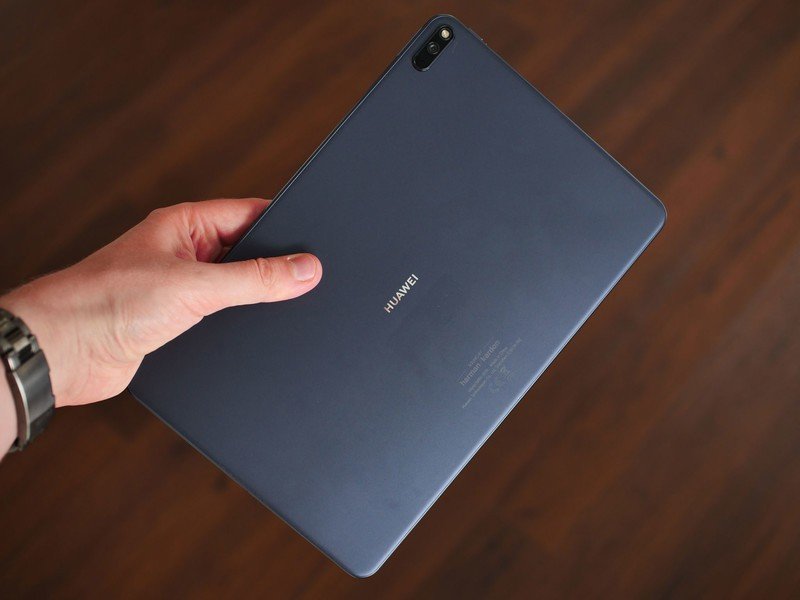
With Google services, the Huawei MatePad Pro would be one of the best Android tablets you could buy. But in its current form, due to circumstances outside its manufacturer's control, the tablet is limited to a much smaller audience.
Who it's for
- Someone who wants (optional) 5G connectivity in a tablet
- Productivity-centric users who don't use Google services
- Someone who probably already owns a Huawei phone
Who it isn't for
- Someone heavily invested in Google's ecosystem
- Someone who wants the very best tablet app experience
- Anyone who wants to watch Netflix
Huawei has put in a diligent effort, outfitting the MatePad Pro with all the value-added features you could want from an Android device in this category. The MatePad can boast fast performance, smart multitasking features to make the most of its large form factor, a solid keyboard dock, and future-proofing for tomorrow's networks thanks to the Kirin 990 5G chipset.
But, because Huawei's own ecosystem is still in its infancy, all these extra features are built atop foundations that just aren't as solid as the competition. At present, this is a critical weakness of most of Huawei's Android products. And so if, like many of us, you rely on Google — or are at least used to Google Play and the way normal Android looks and feels — the MatePad may be a non-starter. Even if you don't, or can persevere, you may in for a long period of adjustment as you use Huawei's tools to hunt down replacements for your standard loadout ofa apps.
The Huawei MatePad Pro could've been a great Android tablet without qualification. But right now, if you want to enjoy some of the best Android tablet hardware out there, there are an awful lot of strings attached.

If you can live without Google services, there's plenty to like about the MatePad Pro's hardware and feature set. Although it's a polished product — more so than an previous Huawei tablet — rival tablets at this price point offer a more frictionless app experience.

Alex was with Android Central for over a decade, producing written and video content for the site, and served as global Executive Editor from 2016 to 2022.

